GET IN TOUCH
- Please wait...

Introducing “What LightCastle Has Read in 2023” – a brand new edition of our annual tradition of sharing the diverse books that have fueled our team’s intellectual curiosity over the past year. From insightful non-fiction to captivating fiction, each title reflects our shared dedication to growth, development, and a knowledge-driven work culture. As we navigate a dynamic world, these books have not only shaped our thinking but have also inspired innovation. Join us in celebrating LightCastle’s collective spirit of pursuing knowledge, grappling with complex ideas, and unlocking fresh insights
Author: Yiyun Li
Reviewed by: Raiysa Zuwairiyah, Business Analyst
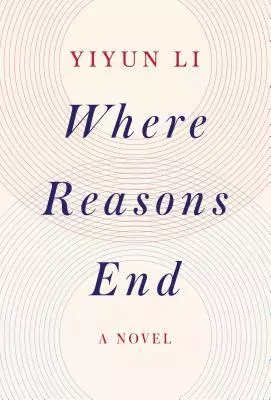
The book follows the daily mundane life of the author and the conversations that she has with her son, Nikolai, but these conversations are within her mind; her son had committed suicide. The conversations depict the complexity of the relationship between an immigrant mother and her son and the devastating grief that the author is going through. The book is her way of giving him life again.
Despite the theme of the book, the prose makes it an easy and fast read. But it is gut-wrenching. The author goes through the everyday tasks of life and talks to her son, while driving, while at the dinner table and while alone in her room or his room. She brings him to life with how he would respond to their conversations and his views of life. Nikolai was brilliant. He had read Les Miserables thrice by the time he was 12 years old. The author criticizes herself through his words, the way he never approved of her writing, the way he never understood her rigid ways, the way he blamed her for her affinity for propriety and lack of displays of emotion- the way Asian parents tend to be. The discussions are about everything and nothing. Some philosophical debates could be between any two intellectuals, while some feel personal about the relationship between the author and her son. Nikolai asks questions, such as, “What happens to sentimental when you take time out of it?” and you’d think it’s leading somewhere profound, the author doesn’t know how to answer her son either, but it’s a play on words – ‘time’ is in the middle of ‘sentimental’. There were parts in the book that made me cry. But what’s a good book if you do not shed tears over it?
The author, as an immigrant, a professor at Princeton, and an award-winning renowned individual, had her drive to attain perfection due to her past experiences shaping her. She felt the need to make something of herself in an unknown country. But her son, Nikolai, who criticizes perfectionism and certain traits in his mother only had the privilege of having a different viewpoint of life because of the life that his mother gave him. It’s a paradox, really. Her struggles lead her to always aspire for perfection, while that very thing makes Nikolai want to run from it. The book deals with grief in a unique way, which is the point. Grief is unique to its bearer. The book is a reminder that you can’t spend time that you don’t have, that grief is inexplicable when you’re the one going through it, and that you are who you are, at least partly, for all the people who came before you, and it reiterates the power that words can have in preserving the essence of people long gone.
“Words provided to me– loss, grief, sorrow, bereavement, trauma– never seemed to be able to speak precisely of what was plaguing me. One can and must live with loss and grief and sorrow and bereavement. Together they frame this life, as solid as the ceiling and the floor and the walls and the doors. But there is something else, like a bird that flies away at the first sign of one’s attention, or a cricket chirping in the dark, never settling close enough for one to tell from which corner the song comes.”
Author: John Green
Reviewed by: Rifah Tasnia, Trainee Consultant
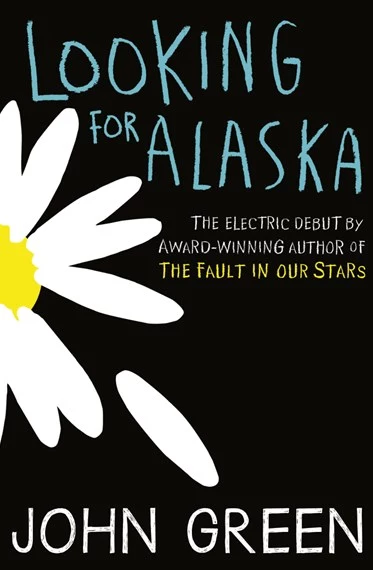
“Looking for Alaska” is a coming-of-age novel about Miles Halter’s experiences at Culver Creek School where he befriends the mysterious Alaska Young. The story delves into themes of friendship, love and the search for meaning with unexpected twists that shape the characters’ lives. The book is known for its exploration of existential questions and emotional depth.
I have a personal affinity for the book’s characters and how their friendships evolve.. especially the way they show genuine support to one another, despite the relatively short duration of their acquaintance. Reading how they pull random pranks in the name of revenge, discover each other’s traumas and then support one another through difficult times, adds a deeper layer to the story which makes it more appealing overall.
1. Those with the liveliest spirit can bear the heaviest emotional burdens. Therefore, it’s important to be compassionate and kind.
2. The beauty of teenage friendship and the irreplaceable joy that comes from a close group of friends. A beautiful experience that I have experienced myself which is why it resonates with me more than anything.
“I’d rather wonder than get the answers I couldn’t live with.”
Author: Holger Rathgeber and John Kotter
Reviewed by: Dipa Sultana, Senior Business Consultant & Project Manager
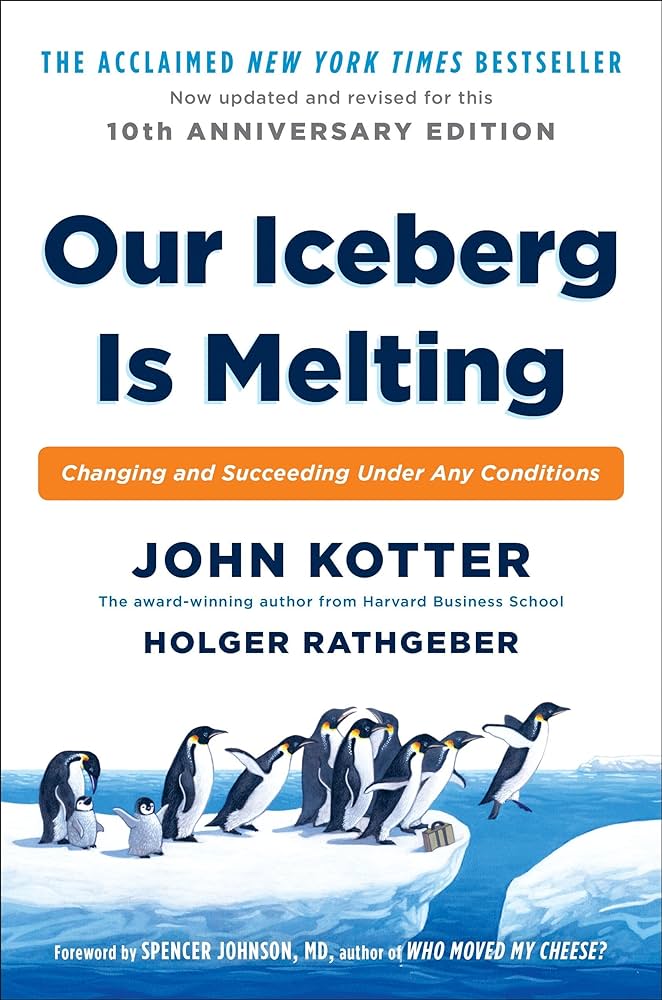
A compelling fable by John Kotter and Holger Rathgebe that uses a melting iceberg as a metaphor to delve into the intricacies of organizational change. The narrative unfolds as a group of penguins confronts the reality of their melting iceberg habitat, serving as a powerful analogy for the imperative of adapting to change. Through the penguins’ experiences, the book provides insightful lessons on effective leadership, collaborative teamwork, and overcoming resistance to change. It serves as a practical guide for individuals and organizations aiming to navigate and excel in dynamic and unpredictable environments.
“Our Iceberg Is Melting” was a gratifying experience marked by the book’s accessibility and engaging prose. The adept integration of visuals and metaphors seamlessly translated intricate ideas into easily comprehensible concepts. The narrative’s focus on practical issues through metaphorical storytelling not only facilitated understanding but also rendered the discussed challenges more palpable, allowing readers to connect with them within the context of relatable scenarios. Moreover, the deliberate emphasis on real-world applicability, coupled with the encouragement of reader imagination, fostered a profound engagement with the material.
The book highlighted on a few core messages while demonstrating practical insights into navigating changes. The penguins in the story exemplify the power of teamwork. Facing a collective challenge, one must work with a team, leveraging each member’s strengths and skills. This signifies the idea that collaboration is crucial for successfully navigating change. Moreover, the book emphasizes the importance of creating a sense of urgency as procrastination or complacency can be detrimental when changes are necessary.
The story advocates for a proactive approach to address issues before they escalate. Dealing with a melting iceberg requires innovative thinking. While adapting to change, encouraging creativity and out-of-the-box solutions is vital. The book inspires readers to approach problems with a fresh perspective and explore unconventional ideas. Although change is essential, the book also underscores the importance of respecting tradition and maintaining core values. Striking a balance between innovation and preserving fundamental principles is crucial for long-term success.
“As you might imagine, the preparation for the second move was less traumatic than the first.”
Author: Hector Garcia & Francesc Miralles
Reviewed by: Nuzhat Naoshin, HR Officer
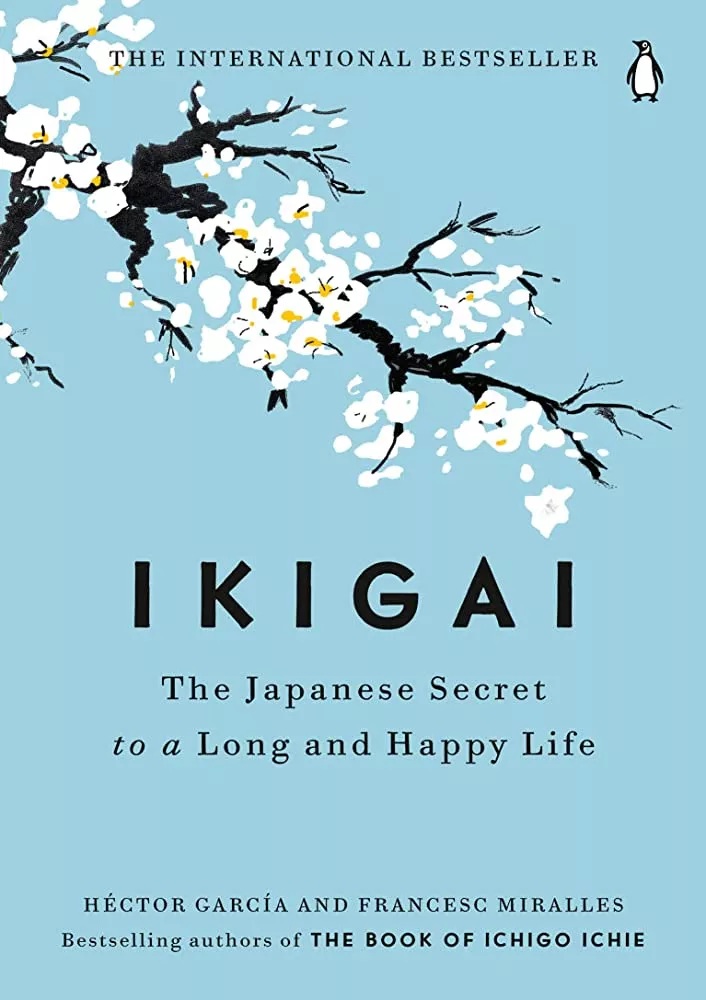
Exploring the journey of pursuing one’s passion to lead a fully focused and fulfilling life, and enjoying the natural flow of life, contributes to longevity. The book emphasizes the significance of uncovering your “IKIGAI” — the convergence of your passion, skills, societal needs, and earning potential — as a pathway to a meaningful and satisfying life.
It helps individuals recognize that genuine satisfaction can be discovered in the small steps of everyday life, which contribute to the flow and pave the way for success. The book offers a thoughtful approach to discovering purpose and leading a more meaningful life.
True happiness lies in the act of doing, not in the outcome. This perspective encourages individuals to relish the present moment, value progress, and find satisfaction in the actions and efforts they invest in their pursuits.
”The happiest people are not the ones who achieve the most, they are the ones who spend more time than others in a state of flow”
Author: Abhijit V. Banerjee, Esther Duflo
Reviewed by: Nazmul Kabir Al-Mehmud, Senior Business Consultant
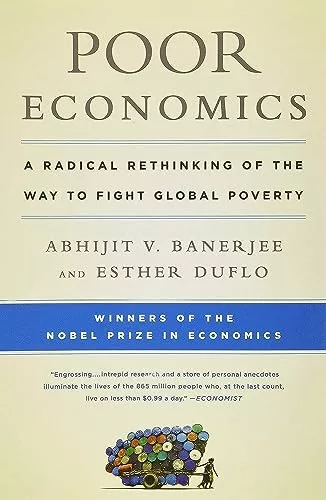
“Poor Economics” focuses on understanding the lives and decision-making processes of impoverished individuals worldwide. The authors use a data-driven approach to challenge common assumptions about poverty and offer insights into practical, evidence-based strategies for improving the well-being of people experiencing poverty. They explore topics like education, health, and finance to provide a nuanced perspective on tackling global poverty. The book encourages readers to reconsider preconceived notions and think critically about the complex issue of poverty.
Overall, Poor Economics remains a significant and thought-provoking book in the fight against poverty. Its strengths lie in its accessible writing, emphasis on evidence-based approaches, and context-specific solutions. However, engaging with its limitations and considering alternative perspectives can enrich the discussion and lead to more comprehensive and effective poverty-reduction strategies.
I hope these observations provide a starting point for further exploration and critical analysis of the book and its contributions to the field.
Here are some key takeaways from the book:
These takeaways highlight the nuanced and data-driven perspective that Banerjee and Duflo bring to the discussion on global poverty.
“The poor, so this logic goes, need to be incentivized to escape their poverty. But here’s the rub: Most of them don’t. What they need is a viable business; but if they had one, they wouldn’t be poor.” – This quote challenges the simplistic notion that the poor are poor because they lack motivation. It emphasizes the importance of addressing structural issues and creating opportunities for the poor rather than just focusing on individual incentives.
Author: Yasmin Mogahed
Reviewed by: Sakina Binte Belayet, Trainee Consultant.
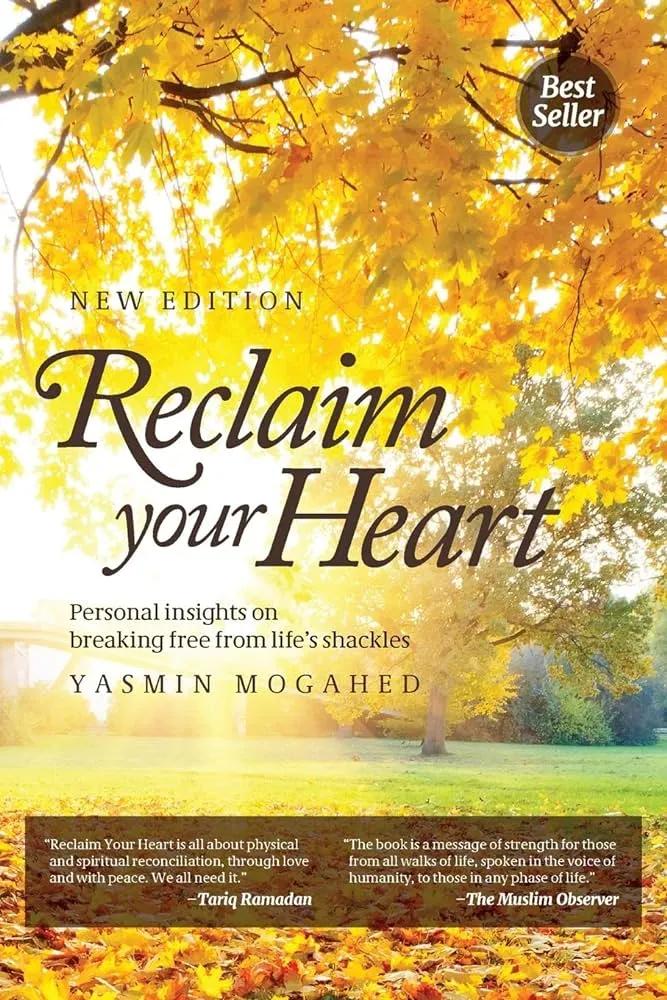
“Reclaim Your Heart” goes beyond the conventional self-help genre by offering a transformative perspective on life deeply rooted in religious wisdom. The book serves as a guiding light through the maze of recurring life patterns, offering heartfelt insights into love, loss, and the pursuit of happiness from a deeply spiritual standpoint. Yasmin Mogahed encourages readers to re-establish their connection to faith and purpose while skilfully navigating the territory of emotional healing. At its core, the book delves into the fleeting nature of worldly attachments, highlighting the inherent disillusionment that accompanies such transitory pursuits. The author masterfully highlights how crucial it is to turn one’s heart towards a deep spiritual connection and to go within for contentment rather than looking outside.By advocating the practice of detachment, the book liberates individuals from confinements imposed by worldly attachments.
The book has been a significant aid in getting me through a challenge I’ve been having. It didn’t just offer a solution but guided me toward a fundamental shift in perspective.It gave me vital lessons, one of which was how to be detached from seemingly intractable issues. It illuminated the truth that in life, control over everything is an illusion. Instead of futilely attempting to manipulate outcomes and consequently spiralling into despair, the book urged me to seek the lessons within challenges. It emphasised the importance of understanding what these difficulties aim to teach us. This shift in mindset has been transformative and life-changing, giving me the ability to face obstacles with renewed resilience and insight.
Embracing pain and adversity through the lens of faith can shape us into stronger individuals with unique insights, and enable us to unknowingly guide others through similar struggles. It also enables us to have profound personal growth. The book underscores the significance of detaching from worldly possessions and desires as a pathway to genuine contentment. It urges us to find contentment through spiritual connections beyond ourselves and human dependencies. The book emphasized mindfulness, urging readers to cherish each moment and cultivate gratitude daily, fostering a more positive outlook on life.
”Sometimes, the ocean floor is only a stop on the journey. It is when you are at this lowest point, that you are faced with a choice. You can stay there at the bottom until you drown. Or you can gather pearls and rise back up—stronger from the swim, and richer from the jewels.”
Author: Rachel Carson
Reviewed by: M. Rakinul Islam, Business Analyst
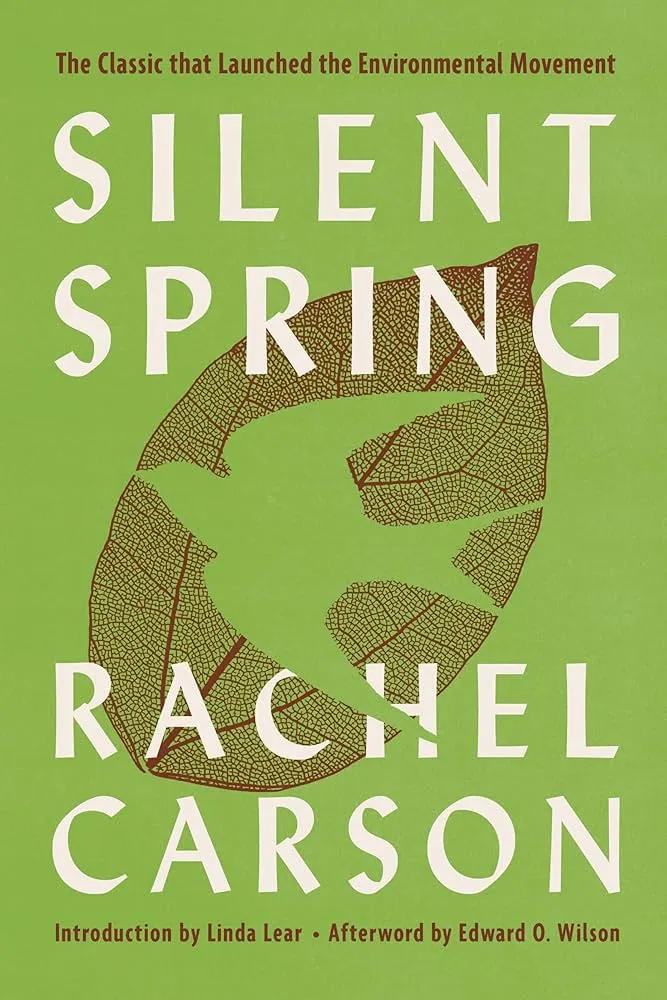
Silent Spring has been a fundamental inspiration in the field of environmental science. The book writes of a not-so-distant future, where the indiscriminate use of pesticides has caused such catastrophic consequences that no birds sing in the spring. It documents the creation of ‘forever chemicals’ for human benefits that eventually plague the ecosystem, a problem more rampant in current times.
Written in 1962, the relevance of Silent Spring has played out like a prediction. Although the book focused on the implications of DDT being used in the agriculture system, we can draw clear inferences from a lot of new inventions that follow the same pathway. In the book, Rachel Carson maps the single use of pesticides how they spread throughout the ecosystem, and how newer, more lethal inventions have to keep replacing them. Silent Spring serves as a reminder to the growing economy, that growth without sustainability almost always leads to irreversible damage.
Until we answer where GDP stops, every effort towards it should consider the environmental, social and economic components of growth.
“Only within the moment represented by the present century has one species — man — acquired significant power to alter the nature of the world. ” – Rachel Carson, Silent Spring
Our experts can help you solve your unique challenges
Stay up-to-date with our Thought Leadership and Insights